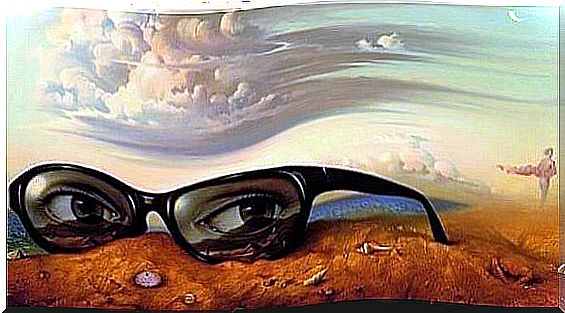Social Knowledge: What Is It And How Do We Get It?

All of us can see that social phenomena are very different in nature than physical phenomena. Not only do we see them differently, but we also treat them differently. But what is social knowledge? And how do we create it in our heads? Well, psychologists throughout history have tried to answer exactly these questions.
The study of social studies is a very broad and very relevant research area. It is a very broad field of interest, and it can be viewed from many different points of view. These include psychological, educational and epistemological. In this article, we will talk about two concrete aspects: the construction of representations of social reality and the nature of social phenomena.
Construction of social knowledge
A key aspect of social knowledge is understanding how society is built. As people, by observing how the world around us works, we build representations or models that explain what we can perceive. This helps us to make sense of what is happening around us and generate our own models, which are very useful as a framework for action.
In reality, these representations make it possible to predict what will happen and act accordingly. It is easy to see the great adaptive value of having an ability to generate and adjust valid, reliable models. For example, when we understand how electricity works and the damage it can do, we reject the idea of sticking our fingers in an electrical outlet!

An important aspect of the human species is our social environment. Because we live in a society, we have been able to adapt to a hostile environment, despite the natural shortcomings of human beings. We have acquired a large repertoire of social models that help us know how to act through our days in our social framework.
Three main categories
Within these representations or social models , which psychologists call social science , we find three main categories:
The knowledge of others and oneself
Through our experiences with others, we create models that allow us to get to know ourselves and other people. Knowing how others’ minds work and how they think helps us to anticipate their actions. Studies on the so-called ” mentalization ” can be included in this section.
Morality and conventional knowledge
A person adopts rules or norms that regulate the relationship he has in relation to others. Knowing these guidelines allows us to adapt to our society and live with others. In this area, the psychologist Lawrence Kohlberg studied the development of morality in man.
The knowledge of institutions
A key aspect of social knowledge is understanding the roles that people play in a society. Here we talk about the representations and models we have about the behavior of different people in our society, whether they are shop workers, bank managers or politicians. This helps us to carry out our specific social actions without having to know how the person in front of us is. This is because we know what role the person must play.
The nature of social phenomena
Although it may seem obvious that there are differences between a physical phenomenon and a social one, the description of such differences can be complicated. You can define physical facts as objective and independent of the subject and social as subjective and dependent. But from a social constructivist perspective, this distinction has no significance.
An attempt to understand what social phenomena consist of is what was proposed by the philosopher John Searle . To explain the representations of the social world, he introduces three elements. Constitutional rules, assignment of functions and collective intention.
Just as a game consists of rules, Searle claims that the institutions do too. The significance of these rules is that without them neither the game nor the institutions could exist. For example, when playing chess, there are rules that tell us what we can and cannot do.
If these rules did not exist, the game would be meaningless. Well, the same thing happens with our institutions. They exist to the extent that we say they exist. A clear example is currency. There are rules that say how much each banknote is worth and under what conditions they can be exchanged. If these did not exist, the money would only be metal or paper.

Social knowledge: Assignment of functions
When we talk about the assignment of functions, we refer to the assignment of functions to objects or people. We say that chairs are there to sit on and that forks are there to eat with. However, these are not inherent properties of the objects in question; we give them their function.
This attribution is largely collective, and generates common knowledge. The role of collective intention is important. It is important to understand the role that people and objects play in society. This means that people share beliefs, desires and intentions.
All this means that we can act within a framework where cooperation is possible. It opens the door to coexistence in an adaptive and secure society for all its members. Social knowledge helps us to understand and know how to act in society.
Studying it is of great value and allows us to act on many levels. We give one last example: education. The more we understand this area, the better models or educational measures we will create and take the path to creating a more just and cooperative society.









